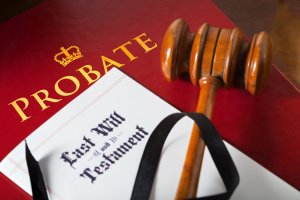Updated: June, 2024
How do I get a Probate Bond (also known as an Estate Bond)?
We work as hard as possible to make it as easy as possible to get a probate bond. Just click the blue button below to get an automatic quote and instant approval! If the bond amount you need is over $100,000 then please click here to get our Probate Application as we'll definitely need more information. Please complete it and then email it, along with the court documents requiring the bond, to [email protected] or fax to 855-433-4192. The fastest way? Get an instant quote, instant approval by clicking the button below (for bonds under $100,000).
Once we get the probate bond application back from you, we will process it. We typically have an answer within 24-48 hours. Once you get approved, we'll let you know the exact fee. Then:
- You send us the fee
- You send us the ORIGINAL application (the one you emailed/faxed earlier)
- You send us a copy of the court documents requiring the bond
Then we'll get the probate bond right out to you. Easy. You can also call us at (979) 314-2999. We review each application for an executor bonds and then submit it to the surety that we believe will provide the best fidelity bond for your estate. They will perform a credit check. We have a high success rate in getting our clients probate estate bonds at the best rates possible.
What is a Probate Bond?
A probate bond is a type of fiduciary bond (also known as an executor's bond) in a legal proceeding called probate. It is a court bond that is issued on the performance of an executor or administrator of an estate through the probate process. The purpose of the bond is to protect the beneficiaries or creditors of the estate from harm caused by the malfeasance or negligence of the executor or administrator. A probate court bond is issued to administrators, executors, conservators and guardians in probate estates. These bonds ensure that the administrator will adequately perform their obligations in the probate matter (as they are rarely used in any trust administration) by making sure that the inheritance goes where it is supposed to go.


What is the purpose of an estate bond?
How Much does a Probate Bond Cost?
The cost of a probate fidelity bond can vary widely depending on the amount of coverage that is required. It is based on the total amount of the estate, including any real estate, that the personal representative has to oversee. The bond premiums are calculated per the table below. We work diligently to find the lowest premiums possible. Please call us today at (979) 314-2999. We'll find you the very best rate possible.
| Bond Amount Needed | Fee |
| <$20,000 | $100-$150 |
| $20,000-30,000 | $150-$200 |
| $30,000-50,000 | $200-300 |
| $50,000+ | 0.5-0.8% |
These rates are for Merit clients, Preferred rates are 0.5% and Standard rates are 0.5 to 0.8%
Who is typically required to post a bond in an estate matter?
I'm a Personal Representative – do I even need a Bond? I mean, what is an example of Malfeasance?
Let's assume that your Uncle Larry was appointed as the personal representative (i.e., administrator) of your father's estate. The probate estate consists of your family home, which is valued at $350,000. There are also several bank accounts worth several thousand dollars, a life insurance policy, two cars, a gun collection and plenty of sentimental items. Unfortunately, your uncle Larry has money issues and is going through a divorce. So, instead of fulfilling his duties to you and your family through the probate process, he instead takes the life insurance proceeds, the gun collection and cleans out the bank accounts and leaves the country. 

Interesting Facts about Probate and Estate Bonds
- Probate bonds are a type of surety bond that is required by a court to guarantee the performance of an executor or administrator of a deceased person's estate.
- Probate bonds are also known as fiduciary bonds and are typically required when an executor or administrator is appointed to manage the estate of a deceased person.
- The purpose of a probate bond is to protect the estate from any potential losses due to the executor or administrator's negligence or mismanagement.
- The probate bond is purchased by the executor or administrator and is typically in the amount of the total value of the estate.
- The bond is typically issued by an insurance company and is backed by a financial guarantee.
- The bond is also a guarantee that the executor or administrator will perform their duties in accordance with the law and the instructions of the court.
How Does a Probate Bond Work in Court?
You may notice that many Wills that are drafted by attorneys waive the requirement of the bond. However, if the court bond is not waived by the Will, then a probate fiduciary bond is needed. The only way to then get away without a commercial bond will be if you 1) get all heirs to agree to waive the bond requirement; 2) whether there are any debts outstanding; and 3) whether the judge will allow for the waiver of the bond. If you are unable to get an agreement by the heirs to waive the fidelity bond requirement, then you will have to get a court fiduciary bond. If there are substantial 

- Indemnity Bonds (sheriff bond) – this protects the marshall from a lawsuit from the party whose assets are seized
- Cost Bonds – these guarantee the repayment of costs that are connected when a lower court's decision is being appealed
- Plaintiff's Bond – this guarantees a certain amount of damages that a party suffers if the action is held in favor of defendant
- Replevin Bonds – these guarantee that the property that was seized will remain in good condition and not disposed of or sold. It is a type of plaintiff's bond.
- Attachment Bonds – A court can require these before property is seized in order to secure a judgment. A type of plaintiff's bond.
- Appeal Bonds – a bond put up by a defendant to guarantee the damages already awarded by a lower court to the plaintiff.
What are the consequences of failing to post an estate bond?
Interesting Statistics on Probate/Court Bonds
- Probate bonds are required in 44 states, with the remaining 6 states requiring some form of surety bond.
- Probate bonds are typically required when a person is appointed to serve as an executor or administrator of an estate.
- The average cost of a probate bond is between 1-3% of the estate's value.
- The maximum amount of a probate bond is typically set by the court at 125% or double (200%) the value of the estate.
- The average probate process takes between 6-12 months (6-12 months)In some states, the probate bond must be filed within 30 days of the appointment of the executor or administrator.
- In some states, the probate bond must be renewed annually.




